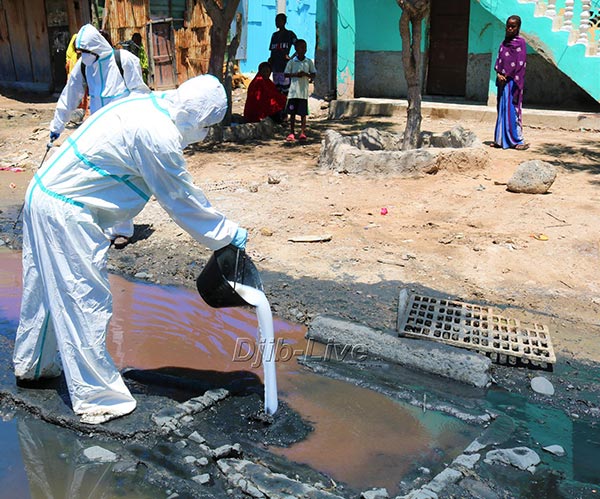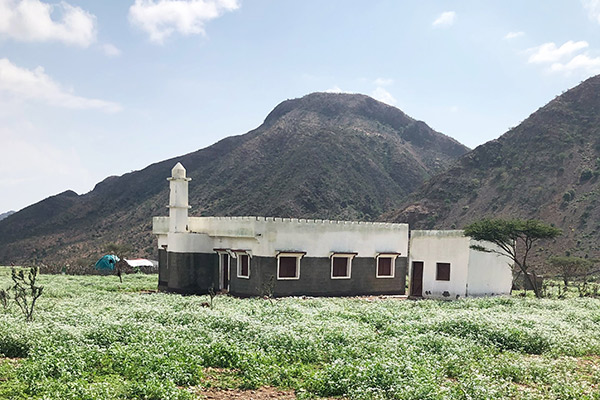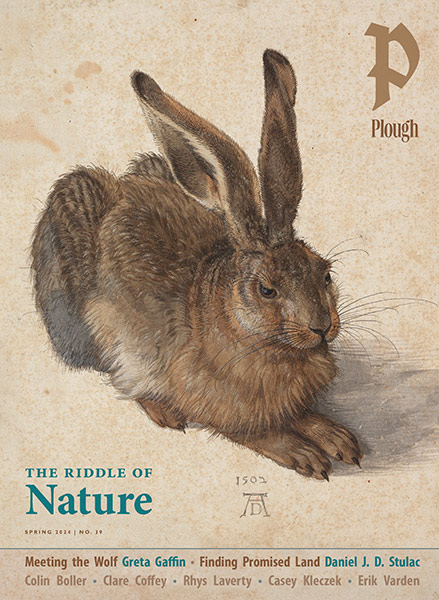Subtotal: $
Checkout-

Sister of the Four
-

Remember When...?
-

The Rawness of the World
-

Precious Friend: What’s Your Victory Song?
-

The Abomination of Desolation
-

Philip Larkin’s “The Trees”
-

Shutdown Hospitality
-

Rejoicing in Apocalypse
-

By the Lights of Brush and Night
-

Learning to Stay
-

Apart Together
-

A Pain in the Navel: Letter from Bogotá
-

The Eternal Questions Illustrated
-

Fellow Feeling in a Crisis
-

Of Ducklings and Baby Fish
-

Service from Suffering
-

Patience in Lockdown
-

A Unique Time of God?
-

Mother Peregrine
-

This Too Shall Pass?
-

A Time for Regeneration
-

The Hard Work of Conversion
-

Tinned Fruit in Times of Famine
-

Floodplain
-

When the Church Doors Close
-

The Pilgrims’ Mark
-

Grateful for Each Breath
-

Care, Pray, Trust, Obey
-

Uncanny Homes
-

Schooling Hope
-

When the Sickness Is Over
-

The Home Is the School
-

Grieving Alone, Together
-

The Art of Dying
-

Scraps and Ruins
-

Clean House
-

Psalms for the Sick
-

The Book of Repose

Breaking the Fast in a Broken World
On the eve of Eid, Djibouti starts to emerge from lockdown.
By Rachel Pieh Jones
May 22, 2020
This is the time to be slow,
Lie low to the wall
Until the bitter weather passes.
Try, as best you can, not to let
The wire brush of doubt
Scrape from your heart
All sense of yourself
And your hesitant light.
If you remain generous,
Time will come good;
And you will find your feet
Again on fresh pastures of promise,
Where the air will be kind
And blushed with beginning.
—John O’Donohue
I’m not ready to come out of lockdown.
Didn’t we think about rejoicing in the streets and parades and parties and dancing? Didn’t we imagine crying as we hugged grandparents and kissed babies? The sound of drums, trumpets, fireworks, marching bands, and airplanes zooming overhead? Didn’t we picture us, humanity, victorious over a conquered virus, declaring our collective strength and congratulating ourselves on a job well done? We would grieve the dead, and it would be a sort of martyr’s death, the fallen heroes. There would be a sense of dignity, solemnity, and profound celebration.
I live in Djibouti, a small country in the Horn of Africa. There were many of us here who thought this. People declared the deconfinement day would be celebrated like New Year’s, but bigger.
We were so wrong. Even as cities and states and countries begin to open, there will be no dancing in the streets. There will be creeping about, a sense of foreboding at the presence of a body nearby that is not the same body we have been staring at for weeks on end in our homes. There will be the doubt that these other people have not been as careful as you, they probably didn’t wash their hands as often, they maybe touched that metal banister, what if they coughed recently? Suspicion and attention to minute movements and details and where have we placed our hands, our mouths, our germs? Skepticism, that what our governments, the CDC, or the WHO have told us is reliable and transparent. Are we safe now? Are we there yet?
Djibouti faces the highest per-capita infection rate on the continent but has only registered four deaths. We have been in confinement since March 19, and recently received word that there will be zero airplane travel until September. There are armed soldiers and roadblocks on every major street corner, sometimes tanks and police vans. For the first few days, they asked drivers where they were going, but soon just waved people through. Shops shuttered their doors for a little while, and then opened them again. Buses and taxis aren’t allowed to operate, except that they do operate. Mosques and the few churches have been closed, so Muslim men gather in large groups, shoulder to shoulder, in the streets to pray. Women continue the status quo of praying at home. The pastor of the French Protestant Church sends video messages to parishioners and we pray for each other over WhatsApp and Zoom.
There is no strict social distancing, not at the market stalls where people crowd around bananas hanging on knotted ropes and weigh kilos of red onions. Not at the khat stands, a leafy drug women sell and men chew and that still arrives daily on trucks and airplanes, crossing the closed international borders. Not during the publicized award ceremony to honor Chinese doctors who came to help.
There is hunger and frustration. Before the pandemic, Djibouti had a 60 percent unemployment rate, and many of those who did work were daily wage laborers who have no ability to save or stock up. And now, it is Ramadan, when Muslims fast from sunup to sundown for thirty days. It is a month of social gathering and hard work, which culminates in one of the largest celebrations of the year. People are longing to pray together, to break the fast together, and to engage in economic enterprise for their future.
I asked a friend if Ramadan is hard this year because of the coronavirus.
“No,” she said, “it is easy. We have nothing else to do.”
In other words, they are able to rest during fasting hours instead of working, essentially flipping the day and night routines. But then she added, “Pray for us, my family doesn’t have much.”
She is one of the only family members with a job, her meager salary supporting more than ten people. I promised to pray and asked her to pray for me, too. I need a new supply of medication that doesn’t exist here and it isn’t yet entirely clear how or when I will get it.
The Djiboutian government is preparing for a slow removal of confinement restrictions, which may come just in time for the Eid celebration. If everything moves forward as planned, mosques will open on the actual day of Eid.
This makes me nervous.
I want my friends to be able to gather, to visit each other’s homes, to come together at Plateau de Serpent and pray. It is a beautiful sight. Men, women, children, everyone wearing brand-new clothes, bowing together in worship. The women look like butterflies in their orange, pink, purple and yellow scarves. The men wear white or robes. Hundreds, if not thousands, side by side, seeking Allah’s favor and honor. I want them to be free and safe.
But I lack confidence that the virus has been contained. I see photos on the local news of what I call our “ghostbuster” teams in hazmat suits, decontaminating heaps of garbage and water so stagnant and rotten it has turned bright pink. By decontaminating, I mean spraying water from fire hoses or dumping buckets of bleach into slime and open sewage. I see the waving on of cars and the shoulder-to-shoulder prayer times and the rule to wear masks that few are following, and I feel apprehensive.
But, there are only four deaths. But, people need to work. But, people ache to pray. I don’t know how to hold these facts, needs, longings, and fears. I don’t know how to live in the world right now.

Decontamination campaign in the Arhiba section of Djibouti City. Image from facebook.com/DjibLive.
I know how to live in my house. I know our routines. I feel no trepidation about playing Settlers of Catan again, or making pizza, or hanging laundry on the line outside. But when asked if I wanted to go to church again, my gut reaction was no. I thought I would be shouting yes! My husband would have shouted yes weeks ago, so I wonder if I am overly fearful, an annoying worrywart. Instead of eager anticipation when our country talked about reopening, I felt a cold creep of dread. The virus has not been defeated. It now lives among us. As we emerge from our hibernation, now comes the brave part about being alive in this new world: living in this new world.
I feel like a rabbit popping its head up out of a hole in the ground. Tentative, alert, on edge, heart racing, adrenaline pumping – what is it like out there now? This ambivalence feels guilty and confusing. Even more, it feels tender, this poking out of heads, this grasping after a wispy hope of a good life still to be lived somehow. Rather than the big party I imagined, it is delicate and precious and vulnerable.
In this tender moment, there is the fear and dread, the anxiety and trepidation. There is the curiosity. There is the desire to see all things made new. There is already regret that maybe I’ve wasted this time somehow, as if that were possible. As though being a person, breathing in and breathing out, were somehow insufficient. There is the insistent hope that the small things we have done are enough. Reading books to nieces and nephews over Zoom, delivering rolls of toilet paper scribbled with jokes, meals dropped off anonymously on doorsteps, washing the dishes, sidewalk chalking the driveway, a voice message, folding socks.
I know we will have to come out. I know we have to go back to work, both personally and globally. I want to, need to, and will. I will grab hold of my brain and my emotions, take them captive, and turn them from fear to hope.
I hope we are changed by how we fought for human life, by how we sought refuge in a place we call home, by how we whispered thank you for small things.
I hope there is work to go back to. I hope there are doctors who will treat cancer, and professors who will teach students, and musicians who will make us cry. I hope there are sports matches for teams from high school up to the Olympics. I hope there are pilots who will fly me toward my children and chefs who create wedding cakes. I hope there are baby showers and blind dates and fiftieth anniversaries and teenagers screaming at band concerts. I hope there are millennials who go to the grocery store for their elderly neighbors and elderly neighbors who teach younger generations how to tend a garden. I hope we can toast the happy couple, huddle close around the wooden coffin, visit the hospital room, sweat together in marathons. I hope we can play cards and share casseroles and put hands on one another when we pray. I hope we are changed by how we fought for human life, by how we sought refuge in a place we call home, by how we whispered thank you for small things like baby giggles and Zoom faux pas and wild mushrooms pushing through rocks in the desert. I hope this change means we will still fight for every human life, that we will help refugees find permanent homes, that we will say thank you more often than we complain and judge, that we will laugh.

Mosque in Dougum Village, Djibouti, flowers in the desert after a major rain storm. Image courtesy of the author.
But before this day arrives, in the face of a deeply uncertain future, it feels outrageous to hope. I write my hopes here and they seem like demands from a petulant child, commanding the world return to what I knew before.
I said to my soul, be still, and wait without hope
For hope would be hope for the wrong thing; Wait without love
For love would be love of the wrong thing; There is yet faith
But the faith and the love and the hope are all in the waiting.
Wait without thought, for you are not ready for thought:
So the darkness shall be the light, and the stillness the dancing.
The first time I read these lines in T. S. Eliot’s “East Coker,” I didn’t like them. Wait without hope? Without love? Then all that remains is despair! But – there is yet faith. Faith wraps around the waiting, undemanding, not petulant, not plagued by anxious thought. Faith holds the hope and the love and faith sees light in darkness, dancing in stillness.
That is how we come out of lockdown.
We know the fleeting nature of sunlight splayed over a spider web, we notice the melting snowflake on an eyelash, we cry, “This is holy,” over cracks in sidewalks and cracks in hearts, we watch Muslims pray on Eid, or we are Muslims praying on Eid, and we whisper “thank you” for a sacred tradition that insists on being honored. We gather up trepidation and explore the world we have created in these past few months. We commit to living with and passing along tenderness. We believe all things will be made new.
Already a subscriber? Sign in
Try 3 months of unlimited access. Start your FREE TRIAL today. Cancel anytime.

















































Metin Erdem , Istanbul
Today is the 30th day of fasting for Muslims and tomorrow is the Feast of Ramadan. On the Feast of Ramadan, people go to the tombs of their parents and pray God for their peace. And young people and children go to visit their parents and elders to kiss their hands to respect. This is the traditon of the Feast of Ramadan. But this year we all are at home because of Covid-19. They can not visit their elders and their tombs. We need to see the message of God . We all people could not respect each other and the nature. We lived our life very fast because of high technology. We forgot our family and friends. We forgot that we needed and belong to each other and God. Today is the time to reliase that we need to each other. By this corona virus pandemic may be we could remember and know our children better and we learnt that we needed to respect our poor world. We need to obey what God wants from us. He wants us to be brother and sister. God wanted us to slow down and be with our families where the peace first begins. We all people on earth are brothers. And it is sure that we can not be brother and sister unles we love each other. Thank you Rachel.
Lawrence
HOPE, well, could real prayer be a spontaneous burst of hope. Something we do not do. Something God does for us. Nicely done Rachel. You may wish to consider this below. Best - Lawrence Could this sobering phenomenon be the need to return to the One Almighty God? The One Almighty Common Sense? We have rarely considered God in this way. God is there, always. We have lived in a way that does not tell of His wish for us all; for God is Life. We have spent thousands of years killing each other; killing God, killing life, which the Buddhists have always been aware of. God revives, however often we kill Him. But will this see the end to dogma, tradition, chanting and ritual? Will the add-ons be removed from religion, religion stripped of all confection? Will one at last agree that God approves of science? There is no need for theists and atheists to be at loggerheads. Does that sound impertinent? Impertinent to God? One suspects, at most, impertinent to dogmatists,